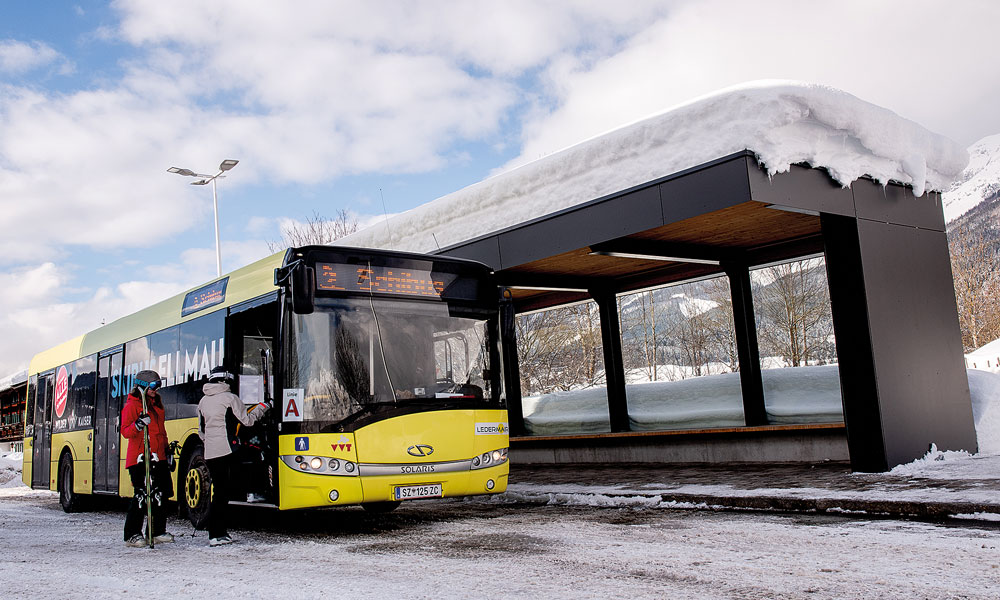
Avoiding rebound effects in virtual mobility
Rebound effects are an ever-increasing challenge in environmental, energy, and resource management. Innovative, behavior-oriented measures are intended to counteract this, specifically in the area of virtual mobility.
A rebound effect occurs when savings achieved through efficiency improvement are partially or fully balanced out by increased use or inefficient behavior. This jeopardizes the achievement of national and international climate targets as potential savings of energy and CO2 emissions are undermined.
The new research project “GReVity – Ganzheitliche verhaltensorientierte Lösungsansätze für Rebound-Management im Bereich Virtual Mobility“ focuses on virtual forms of mobility, such as home office and online shopping. Although they can potentially lead to efficiency gains, they entail the risk of increased resource use and additional emissions, which can offset or even exceed the savings achieved. Examples include using the car for additional leisure activities instead of commuting to work or placing numerous selection orders when shopping online, which can lead to increased CO₂ emissions due to returns.
Control measures in the areas of home office and online shopping
The “GReVity” research project compiles effective measures to reduce these rebound effects and assesses their acceptance and relevance among the population. Based on current studies and literature, sets of measures were developed for different forms of virtual mobility, such as home office and online shopping. Examples of home office measures include making motorized private transport more expensive (e.g., CO2 taxation) or making public transport more attractive (e.g., expansion of services, price reduction). Measures in the area of online shopping include, for example, cross-provider concepts (e.g., white label solutions) or the pricing of returns of goods.
Results of the acceptance and relevance analysis
Salzburg Research is responsible for carrying out acceptance and relevance analyses for this project. The acceptance of the proposed measures and reasons for a lack of acceptance were examined in a comprehensive online survey of Austrian citizens (N = 1000).
Almost two-thirds of those surveyed (63.3%) rejected the measure “making motorized private transport more expensive by means of CO2 taxation“. The reasons for this are a lack of infrastructure, social circumstances, as well as convenience and habit. 70 percent of those who rejected the measure find it inconvenient to use public transport instead of their private cars. In addition, 43 percent of respondents said that they are dependent on their own car due to their social environment (e.g., dropping off and picking up children, which can hardly be managed without a car) and are therefore not in favor of the measure. 37% stated that there is no public transport in their immediate vicinity (less than 1 km), and 35% drive by car out of habit and would find it difficult to change this habit.
The measure of “pricing of returns of goods” (10 euros per return) shows that more than a third (27.5 percent) reject the measure. The main reasons for this are a lack of environmental awareness and convenience. For example, 76 percent stated that the number of parcels they send back is so small that returns and the associated emissions are not significant. For 68 percent, the trip to the store or shopping center would take much longer, which is why they reject this measure. In addition, just under half (49%) find it inconvenient if they have to order more specifically and forego selected shipments.
Relevance and feasibility of the measures
In addition to the online survey, Salzburg Research organized workshops with (inter)national experts from the mobility sector. In these workshops, the proposed measures and sets of measures were discussed in terms of their relevance and feasibility. The results show that although sets of measures in the area of home office were rated as highly relevant by experts, they are often associated with high costs. For example, making motorized private transport more expensive was rated as a very relevant measure. With regard to implementation, however, numerous obstacles were discussed, which show that measures in this area could only be implemented at great expense. Political hurdles, as well as the lack of mobility alternatives, especially in rural areas, were mentioned, for example. Social dimensions such as mobility opportunities or social justice were also discussed in this context. The opportunity to work from home generally affects higher-qualified and high-earning groups of people in particular, i.e., an increase in the cost of private motorized transport would perhaps curb the rebound effects on working from home, but at the same time would also affect groups of people who are less well-educated or earn less but are dependent on a car.
Basis for recommended actions
This research makes an important contribution to the design of sustainable mobility by focusing more on the behavior of users and targeting them in order to minimize the negative effects of the rebound effect. The results from the online survey and the workshops will subsequently form the basis for the development of specific recommendations for action and the planning of implementation steps.
The results could also be of importance for other areas of environmental and resource management beyond the mobility sector. The project underlines the need to combine technological innovations with a deep understanding of human behavior in order to develop long-term, effective sustainability strategies.
GReVity is funded by the Federal Ministry for Climate Protection and the FFG in the Mobility System, Mobility System, Mobility 2023: Urban Mobility and Vehicle Technologies program.








